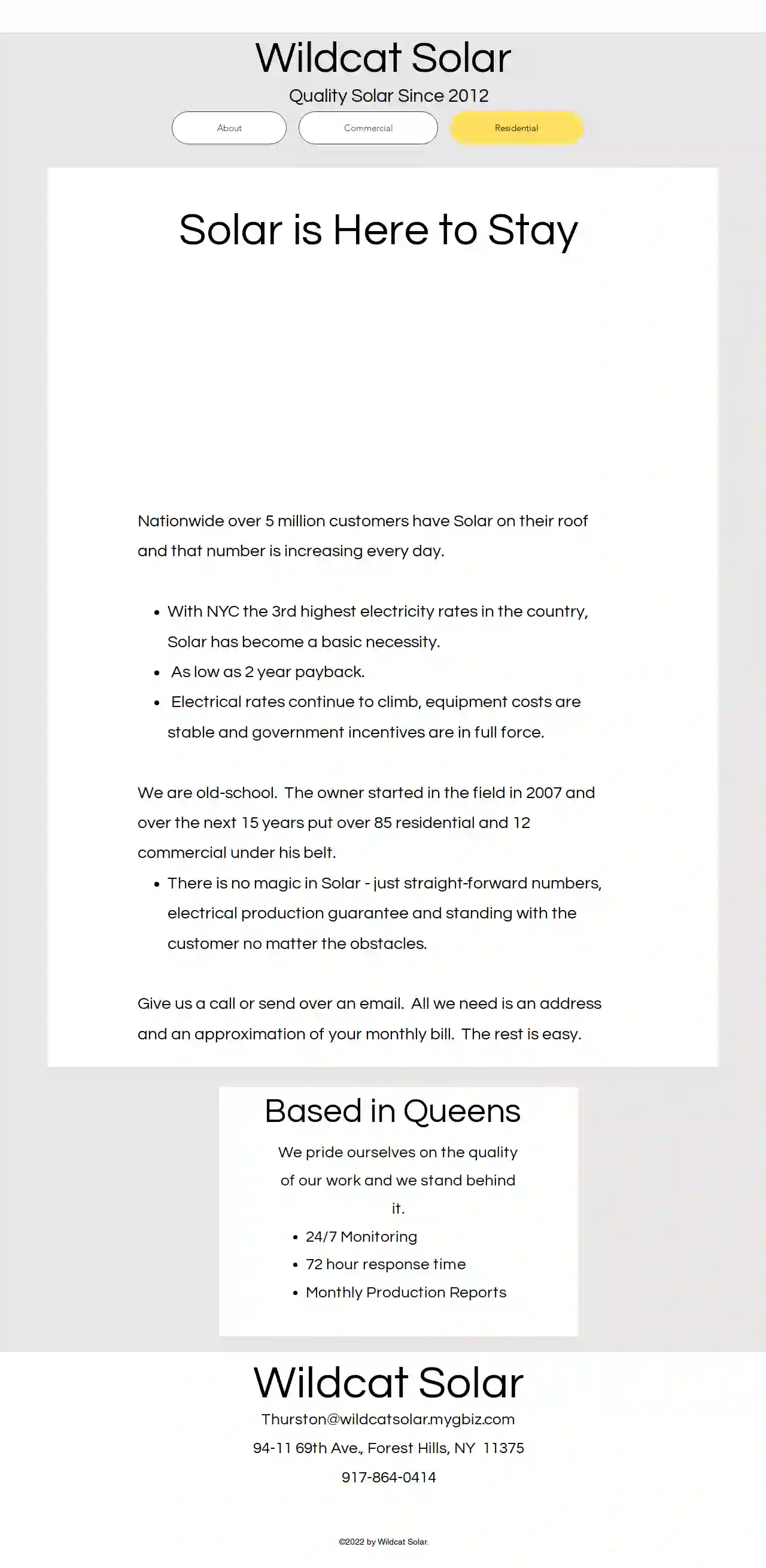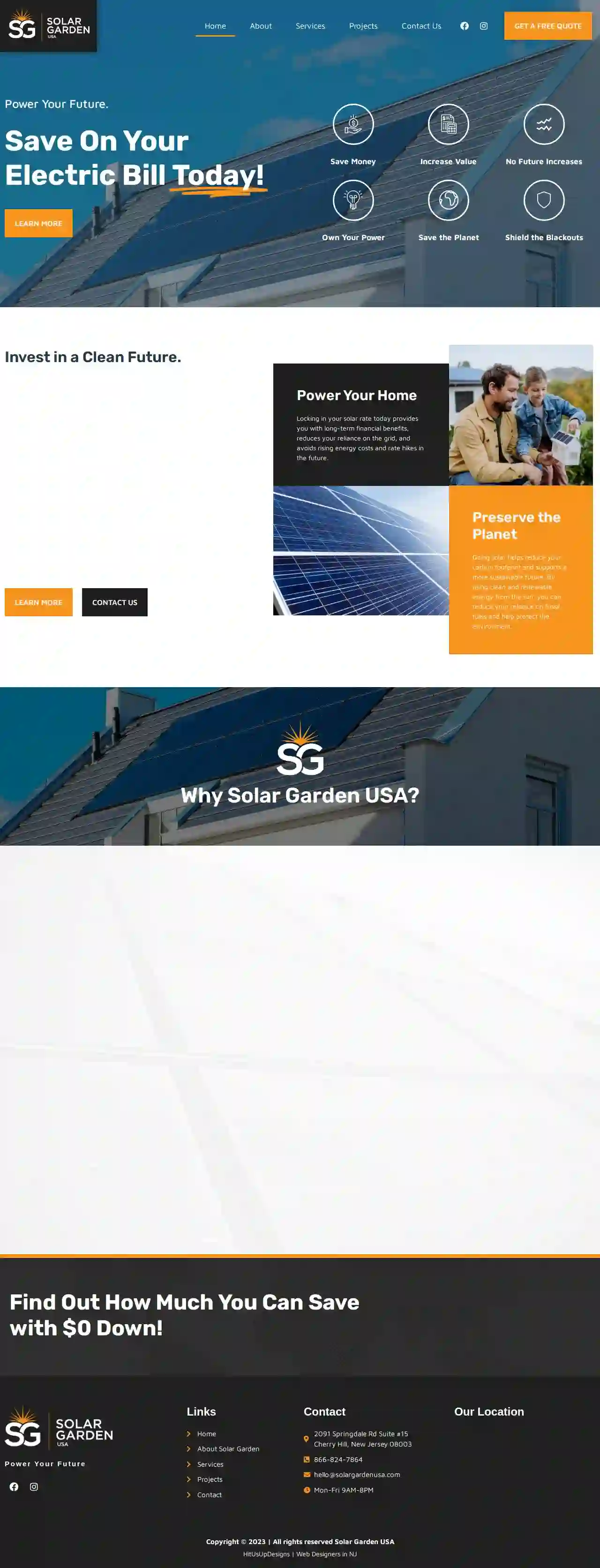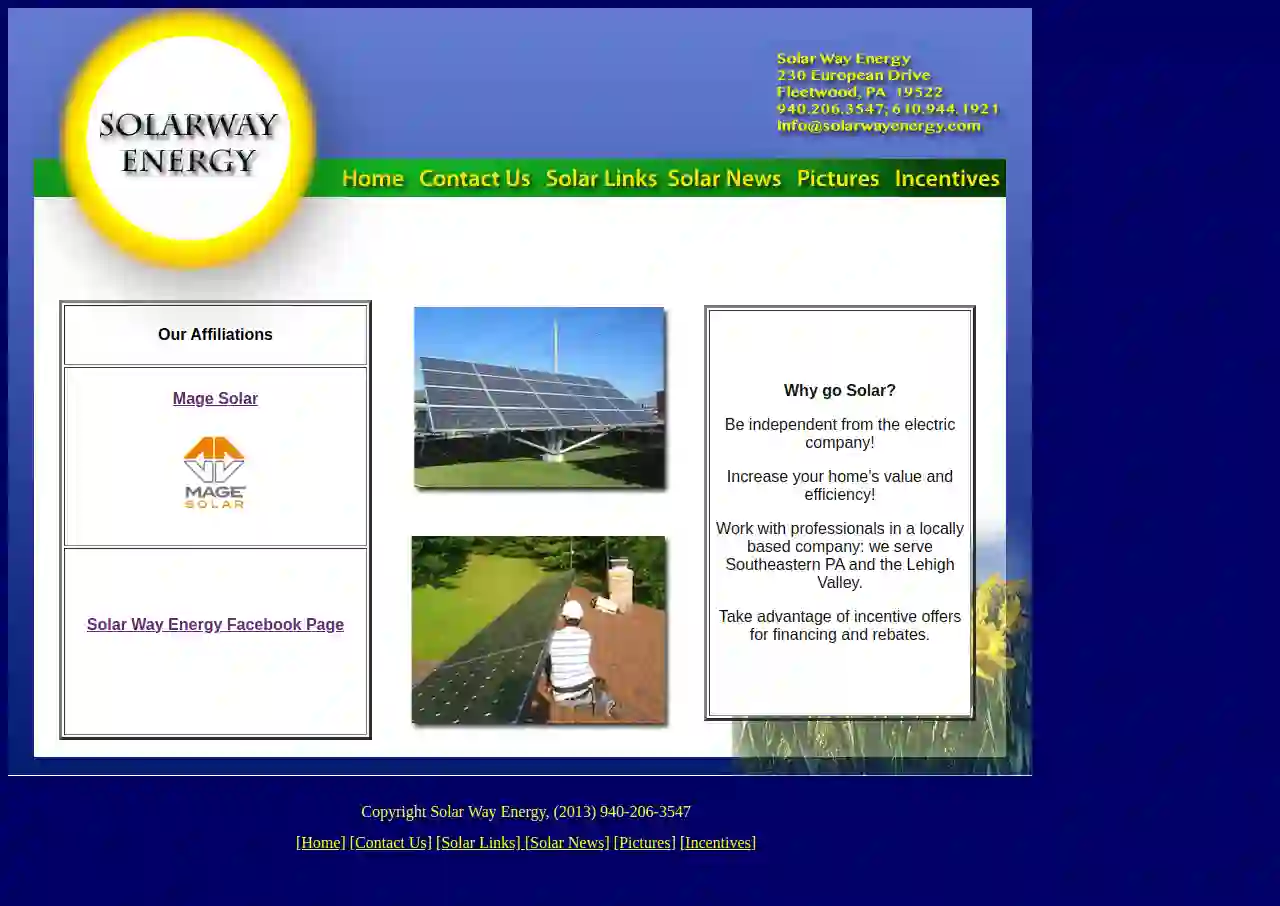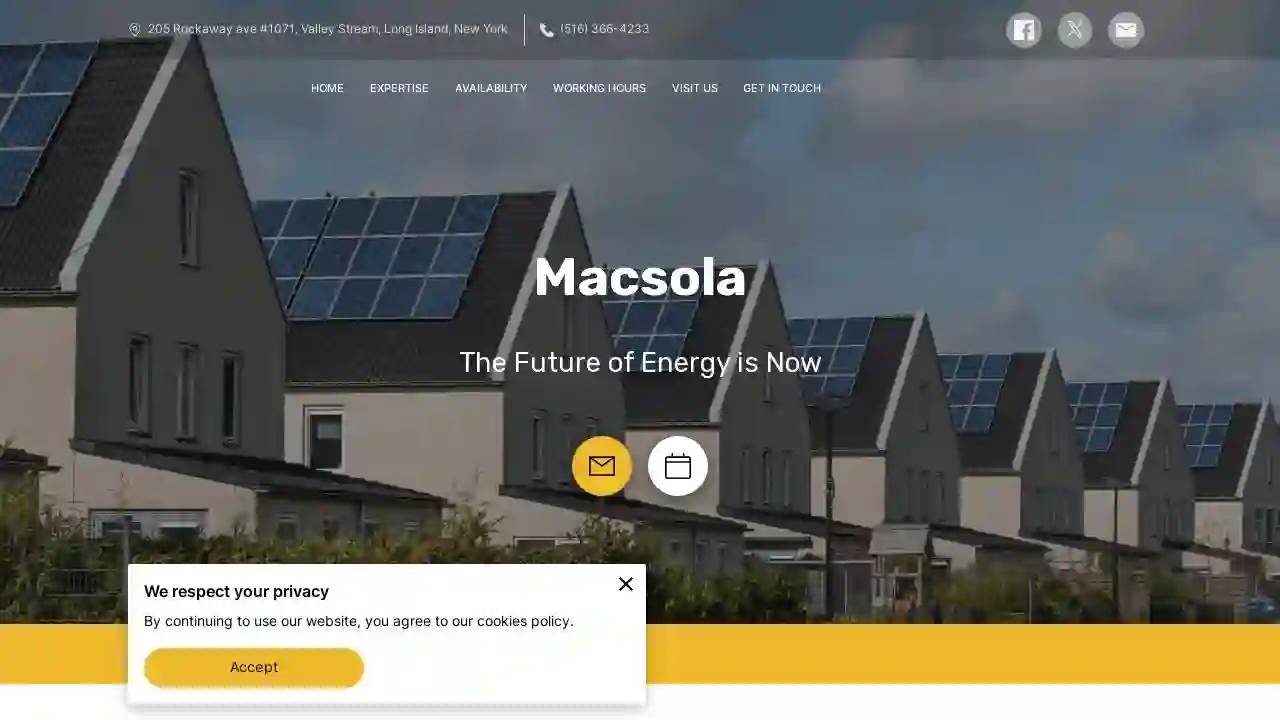Solar Installers Wyndmoor
Top 10 Solar Panel Installers in Wyndmoor
Get multiple Solar Installer quotes for your project today! Compare profiles, reviews, accreditations, portfolio, etc... and choose the best offer.

Solar Technology, Inc.
48 reviewsAllentown, PA, USA, 7620 Cetronia Road, 18106, USSolarTech is a leading provider of traffic safety equipment, offering a wide range of products including arrow boards, message boards, vehicle mount signs, tower trailers, and radar speed trailers. The company is dedicated to providing high-quality, reliable, and innovative solutions to enhance road safety and traffic management. With a strong commitment to customer service and a focus on sustainability, SolarTech aims to make roads safer for everyone.
- Services
- Why Us?
- Accreditations
- Our Team
- Testimonials
- Gallery
Get Quote
Solar Masons
Scranton, Pennsylvania, 800 James Ave, Suite 209, 18510, USSolar Mason is a trusted partner and industry leader in Solar Energy. Established by Noel Segui, a U.S. Army Infantry veteran who valiantly served in support of Operation Enduring Freedom from 2008-2016, Solar Mason's mission is grounded in sustainability, cost-efficiency, and innovation. Our passion for clean energy and commitment to reducing carbon footprints drives our provision of high-quality solar energy systems, ranging from small residential projects to large-scale utility projects such as the 5-megawatt solar farm project in Devens, Massachusetts.
- Services
- Why Us?
- Accreditations
- Our Team
- Testimonials
- Gallery
Get Quote
Wildcat Solar
Forest Hills, NY, 94-11 69th Ave., New York, 11375, USWildcat Solar is a solar energy company based in Queens, New York, that has been providing quality solar services since 2012. They offer both residential and commercial solar solutions, with a focus on providing customers with a basic necessity in the face of increasing electricity rates. The company prides itself on its commitment to quality work and customer satisfaction, offering 24/7 monitoring, a 72-hour response time, and monthly production reports.
- Services
- Why Us?
- Accreditations
- Our Team
- Gallery
Get Quote
Exact Solar
561 reviews82 Walker Ln, Newtown, PA, 18940, USExact Solar is a local solar expert providing solar energy to Pennsylvania, New Jersey, and Delaware for over 19 years. They are fueled by a passion for providing clean and cost-free energy. Their local team of solar experts are fully committed to supporting customers throughout their solar journey, ensuring they feel confident every step of the way.
- Services
- Why Us?
- Accreditations
- Our Team
- Testimonials
- Gallery
Get Quote
Solar Garden USA
52 reviews2091 Springdale Rd Suite #15, N/A, Cherry Hill, 08003, USSolar Garden USA is a leading provider of solar energy solutions, offering a range of services to help homeowners save money on their electric bills, increase the value of their properties, and contribute to a more sustainable future. With a focus on long-term relationships and customer satisfaction, Solar Garden USA offers competitive pricing, licensed professionals, and easy financing options to make going solar accessible to everyone.
- Services
- Why Us?
- Accreditations
- Our Team
- Testimonials
- Gallery
Get Quote
Solar Way Energy
51 reviews230 European Drive, Fleetwood, 19522, USSolar Way Energy is a locally based company that serves Southeastern PA and the Lehigh Valley. They offer solar energy solutions to help individuals become independent from the electric company, increase their home's value and efficiency, and take advantage of financing and rebate incentives. Their team of professionals is dedicated to providing top-notch service and ensuring customer satisfaction.
- Services
- Why Us?
- Accreditations
- Gallery
Get Quote
Macsola
205 Rockaway Ave #1071, Valley Stream, 11580, USMacsola is a family-owned, black-owned, and Latino-owned business based in Long Island, New York. They specialize in solar panel sales and consulting, aiming to make New York City the greenest place on earth. Their mission is to provide affordable and efficient solar panels to meet business and home power requirements while saving on utility bills. They offer free consultations and are partners with NYSERDA.
- Services
- Why Us?
Get Quote
SunLogic Power
512 reviewsAmityville, NY, 599 Albany Ave, Unit C, 11701, USGo SunLogic is a company that helps Long Island families save money and improve the environment by providing solar energy systems, roof replacements, electric vehicle charging stations, and other energy-efficient upgrades. They assist in qualifying for state and federal tax credits and rebates to make going green more affordable.
- Services
- Why Us?
- Accreditations
- Our Team
- Testimonials
- Gallery
Get Quote
SunCycle Renewable Energy/Juuce Energy
54 reviewsNeptune, NJ, USA, 3600 RT. 66 Suite 150, 07753, USJuuce Energy, based in New Jersey, stands out as a premier Engineering, Procurement, and Construction (EPC) firm specializing in solar energy solutions. Our expertise spans from rooftop and ground-mount commercial solar projects to cutting-edge battery energy storage solutions (BESS), offering a comprehensive suite of services including development, EPC, and operations & maintenance – a unique integration in the industry.
- Services
- Why Us?
- Accreditations
- Our Team
- Testimonials
- Gallery
Get Quote
New York Solar Maintenance
5123 reviewsNew York, NY, 123 Solar Street, 10001, USNY Solar Maintenance and Repair is the leading Solar Maintenance and Repair company in New York. Our mission is to help you protect your solar investment, and set you up for solar success. We offer a worry free warranty on any service we complete.
- Services
- Why Us?
- Accreditations
- Our Team
- Testimonials
- Gallery
Get Quote
Over 4,210+ Solar Installers in our network
Our solar contractors operate in Wyndmoor and beyond!
SolarCompaniesHub has curated and vetted Top Solar Companies arround Wyndmoor. Find a trustworthy business today.
Frequently Asked Questions About Solar Installers
- System size (measured in kilowatts, or kW)
- Type of solar panels (monocrystalline, polycrystalline, thin-film)
- Roof complexity (pitch, size, obstructions)
- Labor costs in your area
- Available incentives and rebates
- Your current energy usage
- The size of your solar system
- Your local electricity rates
- The amount of sunlight your panels receive
- Available net metering policies
- String Inverters: Connect multiple panels in a series (a 'string'). A cost-effective option for simple systems, but a single panel issue can affect the entire string.
- Microinverters: Attach to each individual solar panel, maximizing energy production even if some panels are shaded. They are more expensive but offer greater efficiency and monitoring capabilities.
- Power Optimizers: Similar to microinverters, but less expensive. They optimize the output of each panel and provide individual panel monitoring, but a central inverter is still required.
- Hybrid Inverters: Combine a solar inverter with a battery charge controller, allowing for seamless integration of battery storage.
What is the average cost of solar panel installation in USA?
Can I go completely off-grid with solar panels?
How much can I save on my electricity bill with solar panels?
What are the different types of solar inverters?
What is the average cost of solar panel installation in USA?
- System size (measured in kilowatts, or kW)
- Type of solar panels (monocrystalline, polycrystalline, thin-film)
- Roof complexity (pitch, size, obstructions)
- Labor costs in your area
- Available incentives and rebates
Can I go completely off-grid with solar panels?
How much can I save on my electricity bill with solar panels?
- Your current energy usage
- The size of your solar system
- Your local electricity rates
- The amount of sunlight your panels receive
- Available net metering policies
What are the different types of solar inverters?
- String Inverters: Connect multiple panels in a series (a 'string'). A cost-effective option for simple systems, but a single panel issue can affect the entire string.
- Microinverters: Attach to each individual solar panel, maximizing energy production even if some panels are shaded. They are more expensive but offer greater efficiency and monitoring capabilities.
- Power Optimizers: Similar to microinverters, but less expensive. They optimize the output of each panel and provide individual panel monitoring, but a central inverter is still required.
- Hybrid Inverters: Combine a solar inverter with a battery charge controller, allowing for seamless integration of battery storage.